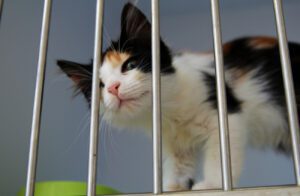BECOMING A TEMPORARY PET PARENT ISN’T AS COMPLICATED AS YOU MIGHT THINK!


While fostering an animal isn’t a new concept, the process can often seem more complicated than it is. “We’ve created our foster program to be as easy as possible, give foster [parents] the support they need and work with them to find the best match possible for their individual home and lifestyle,” says Kristen Sugg, communications manager at Best Friends Animal Society, an animal welfare organization that works with Atlanta’s animal shelters, related organizations and individuals to save the lives of pets in shelters.
How It Works
After filing an application to foster, which is used to help pair the foster parent with the right pet for their lifestyle and personality, a representative from the shelter is required by the Georgia Department of Agriculture to conduct a brief home check, either in person or virtually, to ensure the home is safe for the animal. Then you’re matched with a foster pet of your choice. “We provide all of the supplies you’ll need for your foster pet, too—food, toys, beds, crates, blankets, etc., and provide all of the medical assistance your foster pet needs while they’re with you,” says Christina Hill, associate vice president of marketing and communications at Atlanta Humane Society, which has a facility on the Westside, among other neighborhoods throughout the city.

Providing supplies and medical needs is common among many shelters throughout Atlanta to encourage fostering and lower the overall financial investment required from the foster parent. Some foster organizations offer classes to educate new foster parents, especially those caring for pets that require medical assistance.
Atlanta-based Furkids, for example, provides classes on bottle feeding neonatal pets that are in most need of a foster home because they won’t survive in shelters with their fragile immune systems and round-the-clock feeding schedule. Atlantans can also spot these shelters partnering with the likes of Petco and PetSmart, where those interested can learn more about fostering programs in person.
Why It Helps

“The No. 1 problem fostering helps solve is capacity. The shelter will only hold so many animals, yet there are so many more that need to be saved. Foster homes also provide the emotional support these animals need that we don’t always have the staff resources to provide in the shelter,” says Samantha Shelton, executive director and founder of Furkids. “On average, we’ll have anywhere from 400-500 animals in foster on any given day; that’s how much we rely on our foster home partners.”
Hill notes that an ideal foster parent doesn’t have any existing pets and isn’t looking to bring a new animal into the home permanently but rather offers a comfortable, temporary home for a pet that would otherwise be placed in a shelter until they’re adopted. “The goal of fostering is ‘goodbye,’ because there are always more pets who need you to foster them,” she says. “When animals go into a foster home, we learn so much more about them. They settle in, and their personality traits start to shine, so we’re better able to match them up with a new family.”
LOCAL FOSTER ORGANIZATIONS
Atlanta Humane Society
404.875.5331
atlantahumane.org
@atlantahumane
Atlanta Lab Rescue
atlantalabrescue.com
@atlantalabrescue
Best Friends Animal Society
404.815.6680
bestfriends.org
@bestfriendsanimalsociety
Furkids
770.613.0880
furkids.org
@furkidsatlanta
LifeLine Animal Project
404.294.2996
lifelineanimal.org
@lifelineanimal
PAWS Atlanta
770.593.1155
pawsatlanta.org
@pawsatlanta
Rescue Me Georgia
rmgdogs.org
@rescuemega
STORY: Taylor Heard
Simply Buckhead is an upscale lifestyle magazine focused on the best and brightest individuals, businesses and events in Buckhead, Brookhaven, Sandy Springs, Dunwoody and Chamblee. With a commitment to journalistic excellence, the magazine serves as the authority on who to know, what to do and where to go in the community, and its surroundings.

















